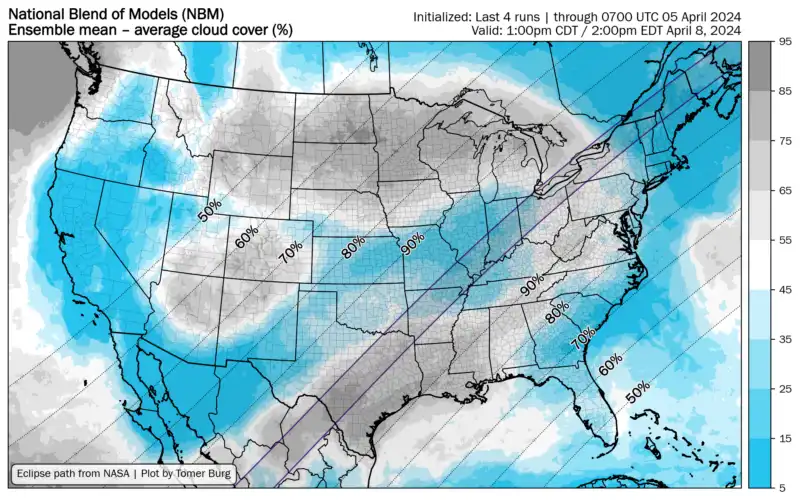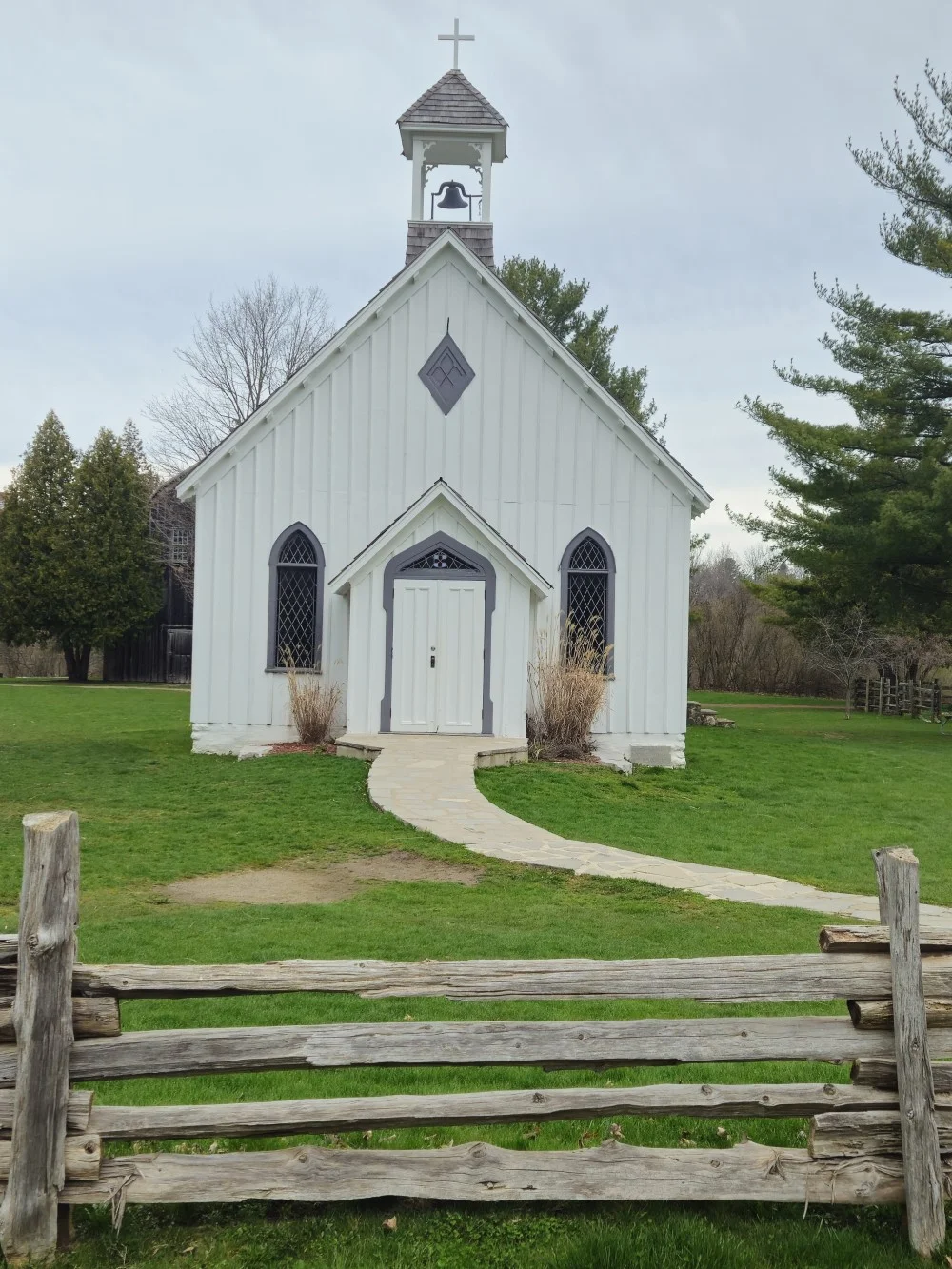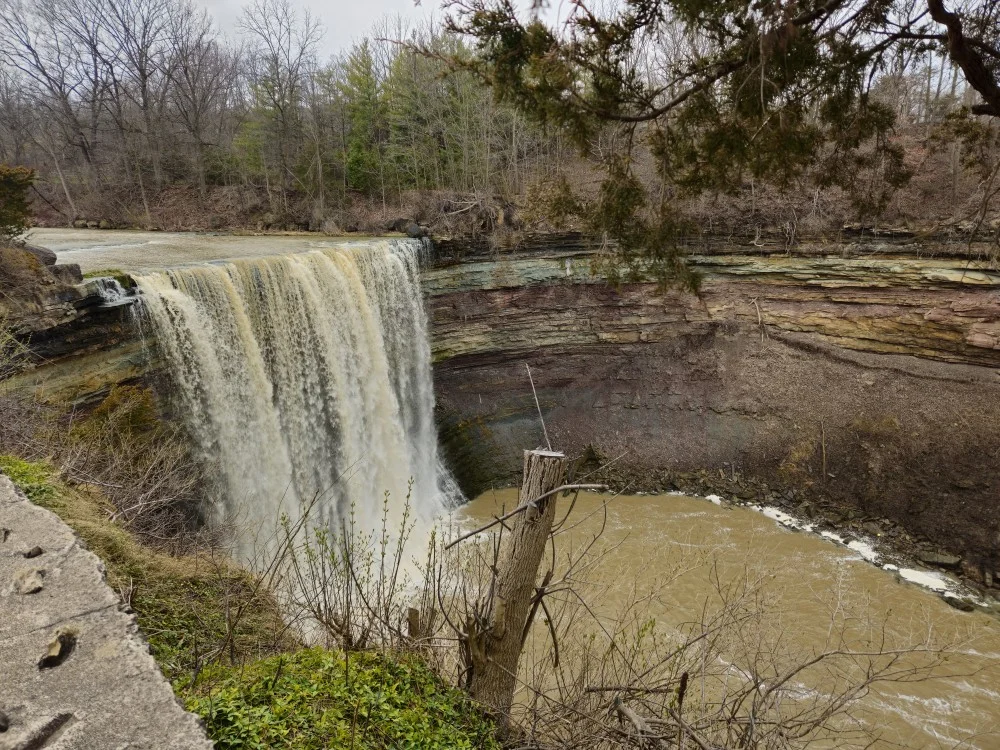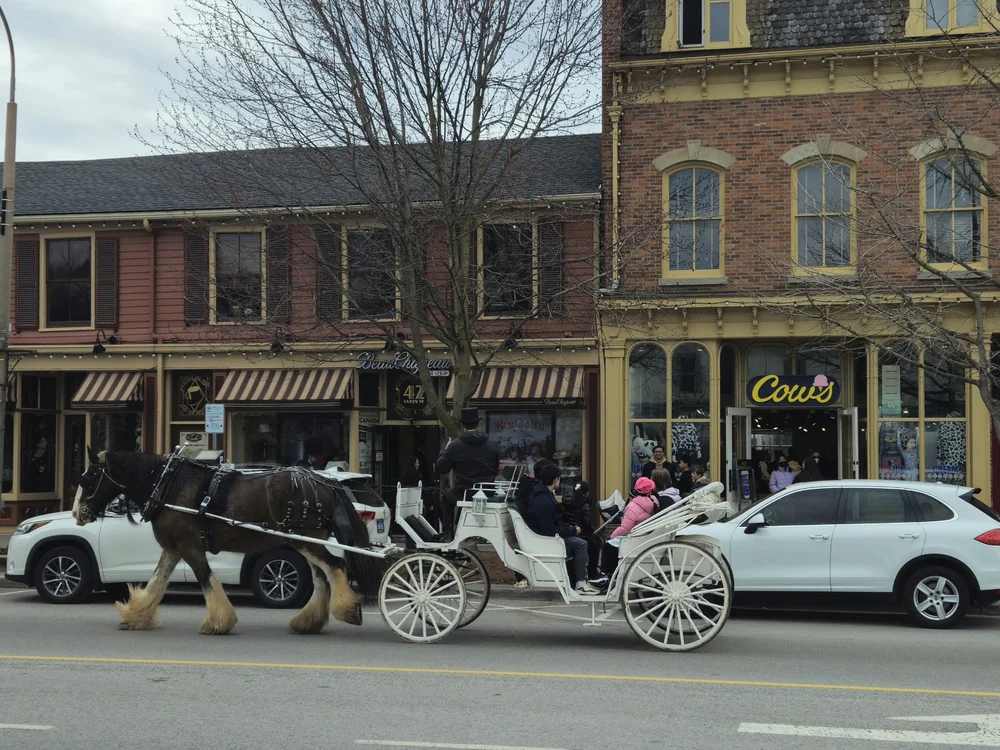roguejuror
rouge
- Since
- Jan 24, 2010
- Messages
- 66,804
- Score
- 7,345
- Tokens
- 36
Our highest confidence area is northern New York, Vermont, New Hampshire, and Maine. The reason is that high pressure will be firmly in place for these locations on Monday, virtually guaranteeing mostly sunny skies. If you want to be confident of seeing the eclipse in North America, this is the place to be. But there is a catch—isn't there always? A snowstorm this week, which may persist into Saturday morning, has made travel difficult. Conditions should improve by Sunday, however.
Rising pressures in the central United States will also make for good viewing conditions. The band of totality running from Northern Arkansas through Indiana is not guaranteed to have clear skies, but the odds are favorable for most locations here.
The Lake Erie region, including Cleveland, is probably the biggest wildcard in the national forecast. The atmospheric setup here is fairly complex, with the region just on the edge of high pressure ridging that will help keep skies clear. I'd be cautiously optimistic.
Finally there's Texas. The forecast overall has been poor since I've began tracking it for the last two weeks. (And as I live in Texas, I've been following it closely.) The global models with the best predictive value—the European-based ECMWF and US-based GFS—have shown consistently cloudy skies across much of the state on Monday, with a non-zero chance of rain. I do think there will be some breaks in the clouds at the time of the eclipse, perhaps in locations near Dallas or to the west of Austin, and hopefully some of the cloud cover will be thin, high clouds. But whereas the skies at night are big and bright in Texas, the solar eclipse viewing conditions might just bite.

Rising pressures in the central United States will also make for good viewing conditions. The band of totality running from Northern Arkansas through Indiana is not guaranteed to have clear skies, but the odds are favorable for most locations here.
The Lake Erie region, including Cleveland, is probably the biggest wildcard in the national forecast. The atmospheric setup here is fairly complex, with the region just on the edge of high pressure ridging that will help keep skies clear. I'd be cautiously optimistic.
Finally there's Texas. The forecast overall has been poor since I've began tracking it for the last two weeks. (And as I live in Texas, I've been following it closely.) The global models with the best predictive value—the European-based ECMWF and US-based GFS—have shown consistently cloudy skies across much of the state on Monday, with a non-zero chance of rain. I do think there will be some breaks in the clouds at the time of the eclipse, perhaps in locations near Dallas or to the west of Austin, and hopefully some of the cloud cover will be thin, high clouds. But whereas the skies at night are big and bright in Texas, the solar eclipse viewing conditions might just bite.





